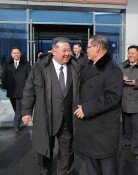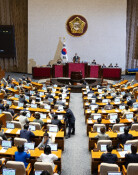[Op-Ed] More Jobs Mean Less Poverty
[Op-Ed] More Jobs Mean Less Poverty
Posted July. 15, 2009 08:22,
The Korean economy had grown an annual average of eight percent since the early 1960s, when economic development projects began. With the size of both the economy and business growing, the number of well-paying jobs increased and living standards dramatically improved. So much so that the World Bank calls Korea a model for simultaneously achieving rapid economic growth and wealth distribution. Few foreign scholars and think tanks agree with domestic groups that argue that the growth benefited only conglomerates.
The Korea Development Institute said the relative poverty rate of urban households since 2000 has risen much faster than the Gini coefficient, or the level of income inequality. Last year, the poverty rate rose to 14.3 percent, almost double that of 1992 (7.7 percent). While the average poverty rate of Organization for Economic Cooperation and Development member countries rose six-tenths of a percentage point over the past 10 years, that of Korea grew four to five points. Though institutional democracy was achieved, the ranks of middle class have shrank after ballooning under authoritarian governments.
The number of poor has risen dramatically because the economy has been mired in both low growth and low investment. With the notions of equality and balance dominant, companies are reluctant to make domestic investment, leading to low growth, a decline in high-paying jobs, and more of the middle class falling into poverty. Uneven wealth distribution is not a decisive factor in the rise of poor households. All the more disheartening is the news that the potential growth rate has fallen to the three percent range. Former U.S. President John F. Kennedy stressed the importance of economic growth with the phrase, A rising tide lifts all boats.
Policy and political consideration to assist low-income households and improve wealth distribution structure is necessary. The idea of giving wealth to the have nots by snatching from the haves, however, will further aggravate the situation. The best solution to prevent poverty is to create well-paying jobs by lifting the morale of entrepreneurs and giving a boost to companies, which act as growth engines. The head of the Gyeonggi Research Institute, Jwa Seung-hee, said, Urgently needed are policy measures that encourage investment such as the media reform bill and a law lifting restrictions on the separation of finance and industry, which are opposed by opposition parties and left-leaning groups.
Editorial Writer Kwon Sun-hwal (shkwon@donga.com)







